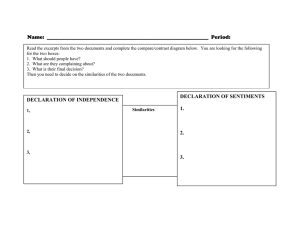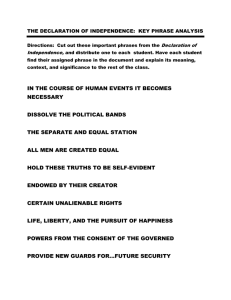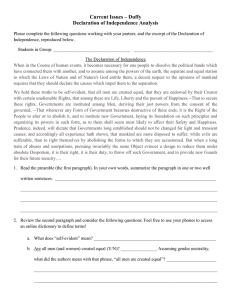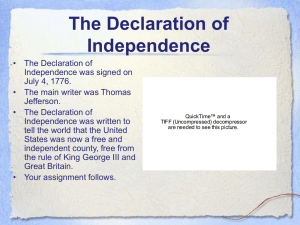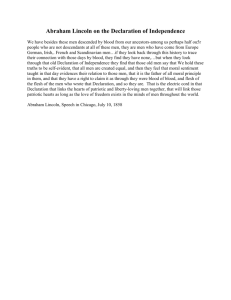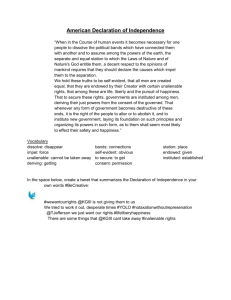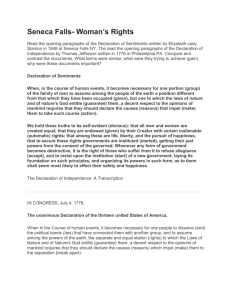The Declaration of Independence – 1776
advertisement
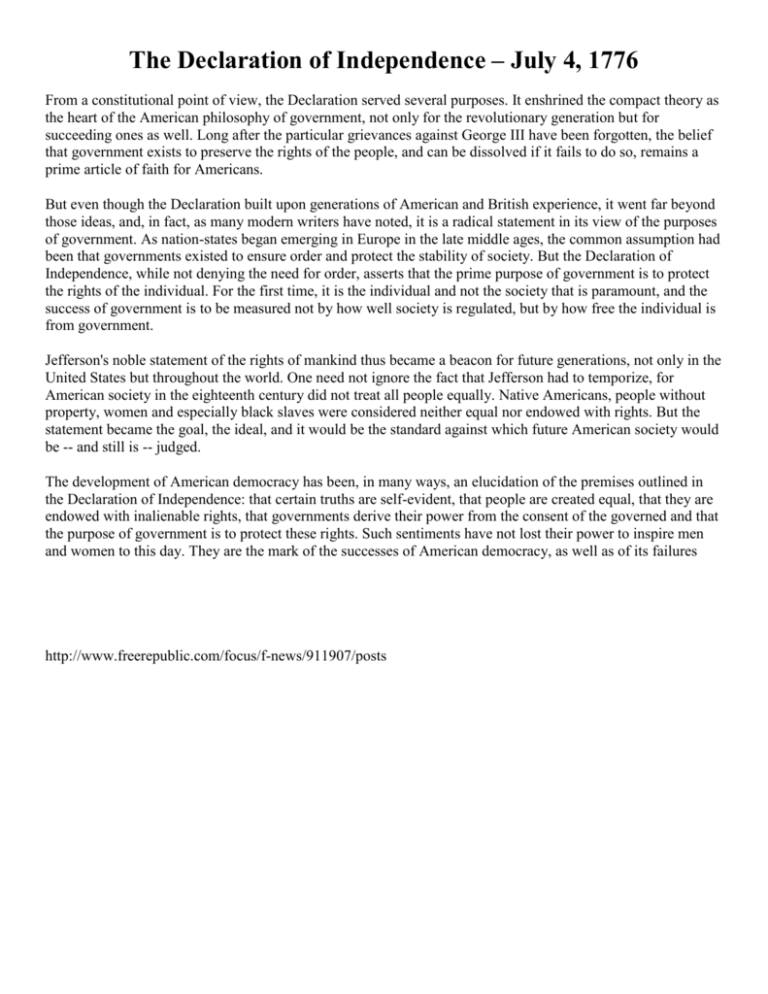
The Declaration of Independence – July 4, 1776 From a constitutional point of view, the Declaration served several purposes. It enshrined the compact theory as the heart of the American philosophy of government, not only for the revolutionary generation but for succeeding ones as well. Long after the particular grievances against George III have been forgotten, the belief that government exists to preserve the rights of the people, and can be dissolved if it fails to do so, remains a prime article of faith for Americans. But even though the Declaration built upon generations of American and British experience, it went far beyond those ideas, and, in fact, as many modern writers have noted, it is a radical statement in its view of the purposes of government. As nation-states began emerging in Europe in the late middle ages, the common assumption had been that governments existed to ensure order and protect the stability of society. But the Declaration of Independence, while not denying the need for order, asserts that the prime purpose of government is to protect the rights of the individual. For the first time, it is the individual and not the society that is paramount, and the success of government is to be measured not by how well society is regulated, but by how free the individual is from government. Jefferson's noble statement of the rights of mankind thus became a beacon for future generations, not only in the United States but throughout the world. One need not ignore the fact that Jefferson had to temporize, for American society in the eighteenth century did not treat all people equally. Native Americans, people without property, women and especially black slaves were considered neither equal nor endowed with rights. But the statement became the goal, the ideal, and it would be the standard against which future American society would be -- and still is -- judged. The development of American democracy has been, in many ways, an elucidation of the premises outlined in the Declaration of Independence: that certain truths are self-evident, that people are created equal, that they are endowed with inalienable rights, that governments derive their power from the consent of the governed and that the purpose of government is to protect these rights. Such sentiments have not lost their power to inspire men and women to this day. They are the mark of the successes of American democracy, as well as of its failures http://www.freerepublic.com/focus/f-news/911907/posts Declaration of Independence -1776 We hold these truths to be self-evident, that all men are created equal, that they are endowed by their Creator with certain unalienable Right, that among these are Life, Liberty, and the pursuit of Happiness. That to secure these rights, Governments are instituted among Men, deriving their just powers from the consent of the governed, That whenever any Form of Government becomes destructive of these ends, it is the Right of the People to alter or to abolish it, and to institute new Government, laying it’s foundation on such principles, and organizing it’s powers in such form, as to them shall seem most likely to effect their Safety and Happiness. Prudence, indeed, will dictate that Governments long established should not be changed for light and transient causes; and accordingly all experience hath shewn, that mankind are more disposed to suffer, while evils are sufferable, than to right themselves by abolishing the forms to which they are accustomed. But when a long train of abuses and usurpations, pursuing invariably the same Object, evinces a design to reduce them under absolute Despotism, it is their right, it is their Duty, to throw off such Government, and to provide new Guards for their future security. -Such has been the patient sufferance of these Colonies; and such is now the necessity that constrains them to alter their former Systems of Government.
